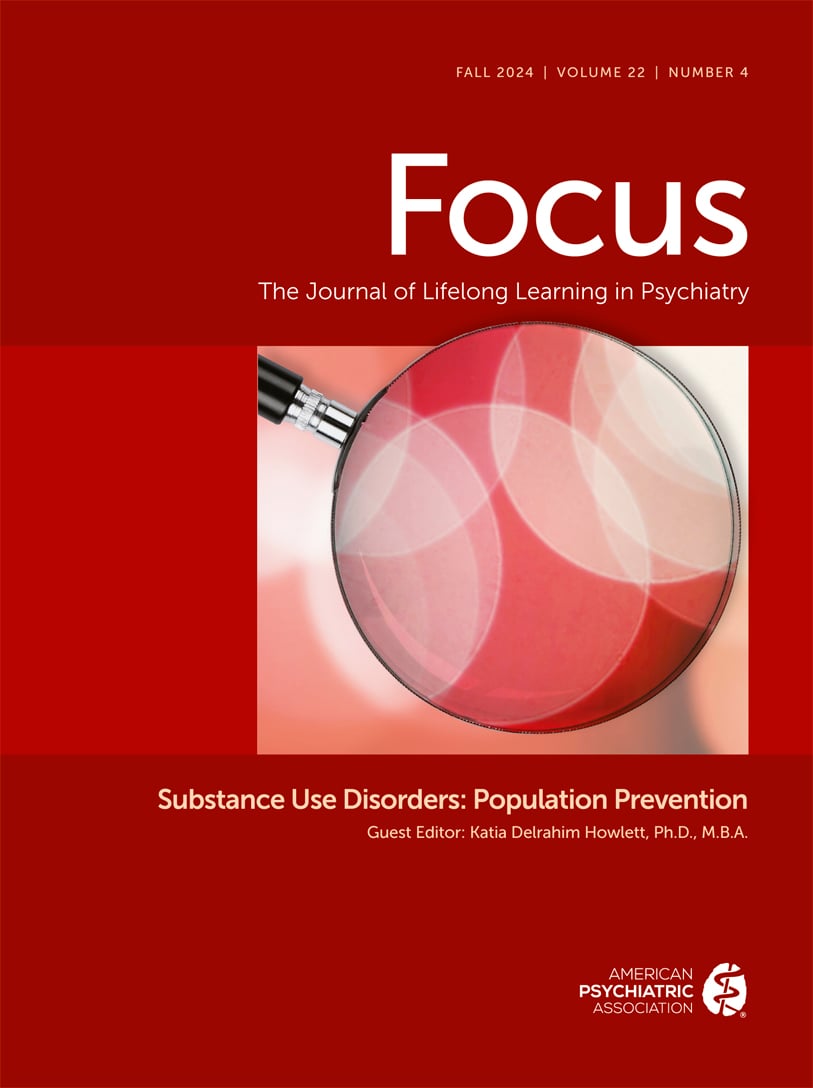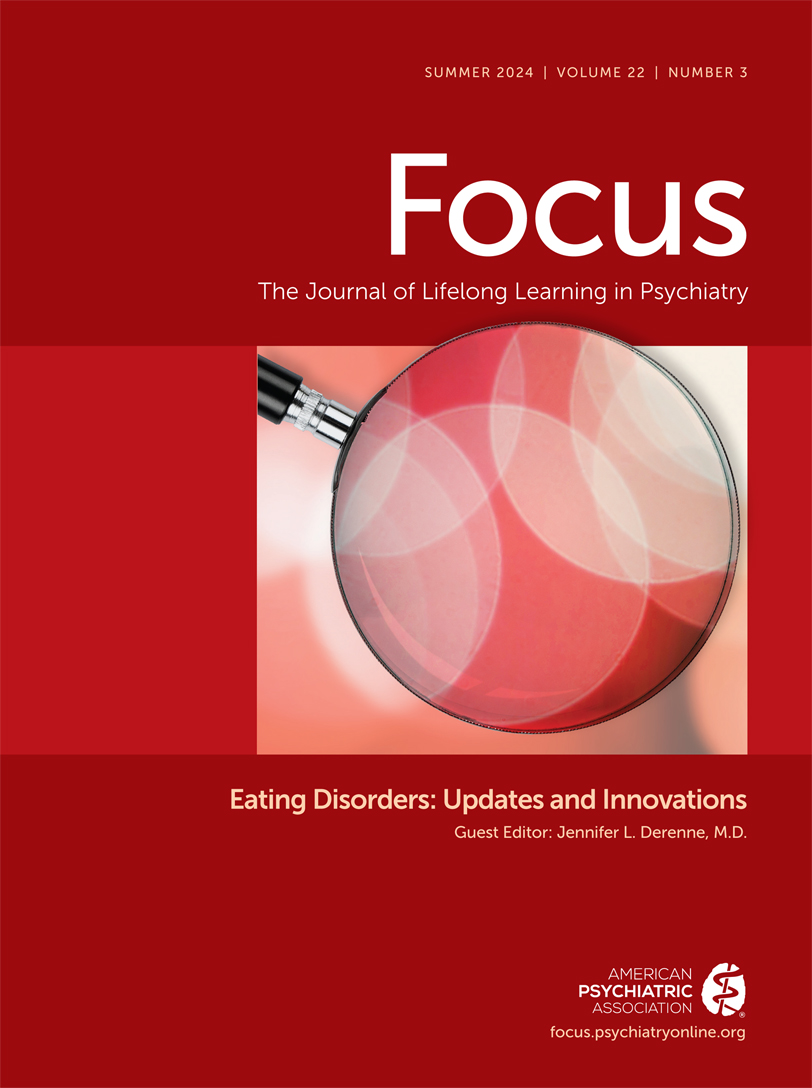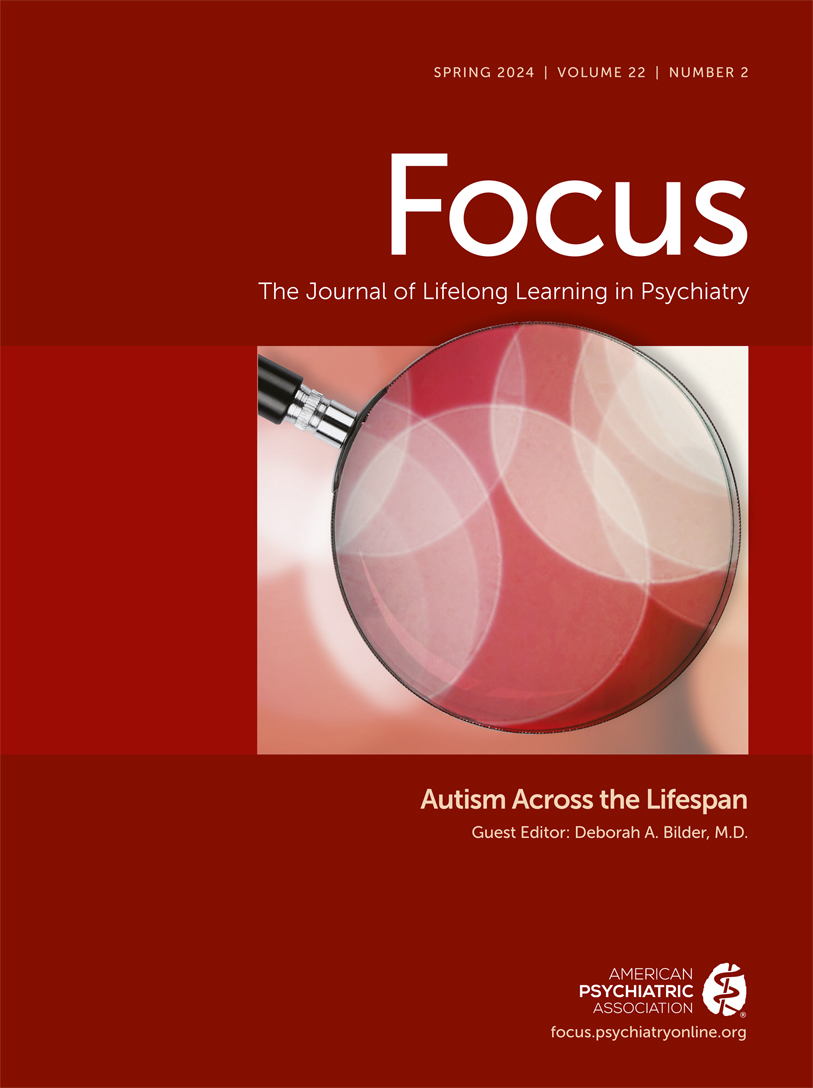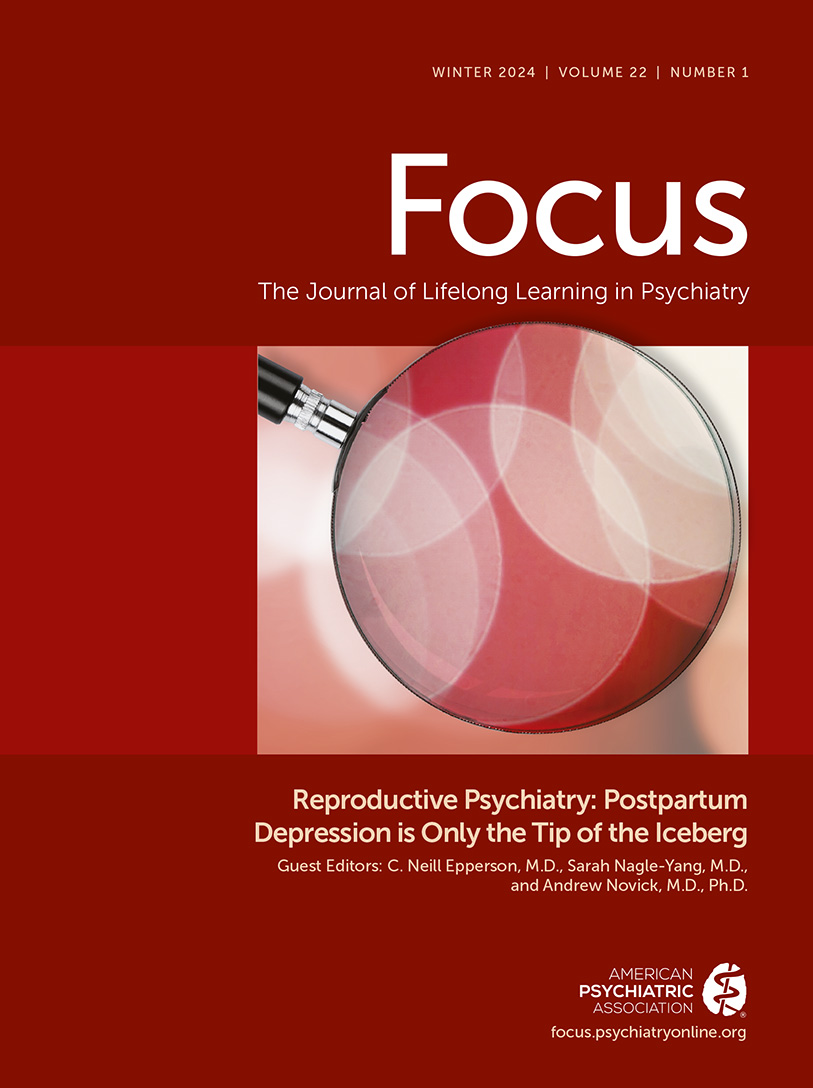Focus
- Volume 12
- Number 1
- January 2014
From the Guest Editor
Clinical Synthesis
Publication date: 01 January 2014
Pages3–8Whereas once thought to be a benign malady, recent advances in sleep research confirm that insomnia is a common condition with a host of associated risks and consequences. Our view of insomnia is also shifting from a symptomatic complaint, to a distinct ...
https://doi.org/10.1176/appi.focus.12.1.3Publication date: 01 January 2014
Pages16–30The category of sleep disorders known as parasomnias includes behavioral disturbances occurring during sleep or states of mixed sleep and wakefulness. They can be minimal and confined to vocalizations or minor movements or of a magnitude that can lead to ...
https://doi.org/10.1176/appi.focus.12.1.16Publication date: 01 January 2014
Pages31–37Insomnia, a costly public health problem, can be precipitated by multiple forms of stress. Sleep difficulties have many sources, some based in medical or mental health disorders and some based in other sleep disorders or in substance abuse. Primary ...
https://doi.org/10.1176/appi.focus.12.1.31Publication date: 01 January 2014
Pages38–44Advances in the basic science of sleep/wake neurophysiology are driving the exploration of new pharmacologic approaches with continued improvement in efficacy and safety.
https://doi.org/10.1176/appi.focus.12.1.38Publication date: 01 January 2014
Pages45–53Circadian rhythms refer to the regulation of physiology in a 24-hour cycle and are involved in our sleep-wake cycle, core body temperature, hormone secretion, hunger, mood, and more. Circadian rhythm disorders arise from a misalignment of the timing of ...
https://doi.org/10.1176/appi.focus.12.1.45Publication date: 01 January 2014
Pages56–59This exercise is designed to test your comprehension of material presented in this issue of FOCUS as well as your ability to evaluate, diagnose, and manage clinical problems. Answer the questions below, to the best of your ability, on the information ...
https://doi.org/10.1176/appi.focus.12.1.56Publication date: 01 January 2014
Pages64–67As we adopt a forward-looking perspective in the still emerging field of sleep medicine, it is imperative to revisit a set of core ethical principles to serve as a road map in this journey. The foundational concepts of nonmaleficence, autonomy, ...
https://doi.org/10.1176/appi.focus.12.1.64Influential Publications
Publication date: 01 January 2014
Pages73–79Study Objectives To investigate the efficacy of melatonin compared to placebo in improving sleep parameters in patients with primary sleep disorders. Design PubMed was searched for randomized, placebo-controlled trials examining the effects of melatonin for ...
https://doi.org/10.1176/appi.focus.12.1.73Publication date: 01 January 2014
Pages80–89Background Insomnia is common in primary care, can persist after co-morbid conditions are treated, and may require long-term medication treatment. A potential alternative to medications is cognitive behavioral therapy for insomnia (CBT-I). Methods In ...
https://doi.org/10.1176/appi.focus.12.1.80Publication date: 01 January 2014
Pages90–98Study Objectives To evaluate whether depressive symptom severity leads to poorer response and perceived adherence to cognitive behavioral therapy for insomnia (CBTI) and to examine the impact of CBTI on well-being, depressive symptom severity, and suicidal ...
https://doi.org/10.1176/appi.focus.12.1.90Publication date: 01 January 2014
Pages99–121A systematic literature review and meta-analyses (where appropriate) were performed to update the previous AASM practice parameters on the treatments, both dopaminergic and other, of RLS and PLMD. A considerable amount of literature has been published ...
https://doi.org/10.1176/appi.focus.12.1.99Past Issues
View Issues Archive
Vol. 22 | No. 4

Vol. 22 | No. 3

Vol. 22 | No. 2
